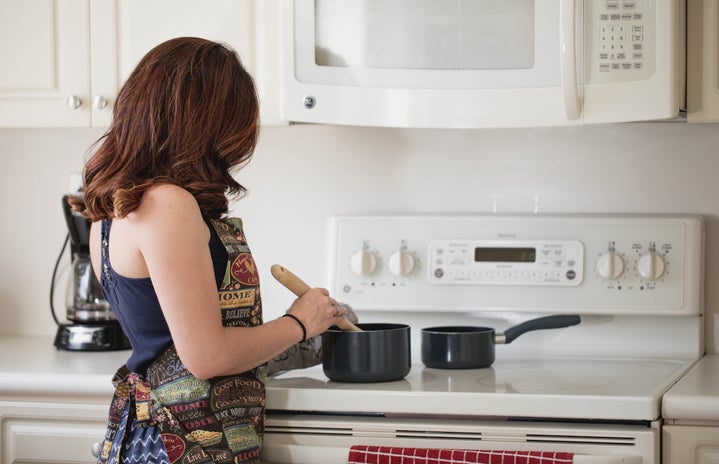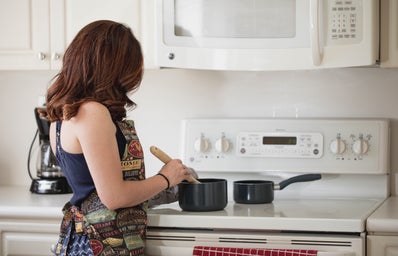Whether the word “housewife” causes you to conjure an image of an apron-clad woman from the 50s or one of your own mother, the label and the lifestyle have become very controversial in the past few decades. Some say housewives are dedicated homemakers, taking on responsibilities that they should be paid to handle. Less generous perspectives consider housewives to be lazy or unambitious. In any case, the advancement of women’s rights has led to a division in the way that housewives, homemakers, or stay-at-home mothers are perceived.
For centuries, women were expected to stay at home in order to take care of their husbands and children. They had no career outside of the house because they had no choice in the matter. Ever since we were given a choice, however, many women have decided to make a career for themselves along with or instead of caring for a family. With varying degrees of success, they often do it all or at least try.
Those who applaud housewives for their hard work have usually had a positive experience whether with their mother or a family member. Before I was born, my parents decided that my mom should stay home with me so that I wouldn’t be passed around to babysitters or other family members constantly. My only experience growing up was with a stay-at-home mom who was always there for my brother and me to comfort us, cook and clean, and pick us up from school when we weren’t feeling well. This had a positive impact on me and the way that I view the duties of a housewife. Like many other families, this was the structure that worked best for us and was most beneficial to my family.
Unfortunately, the more negative depiction of what a housewife does is essentially “nothing”. When a person with no knowledge of a family’s individual circumstances hears that one parent (namely the mother) doesn’t have a career outside of the home, they tend to make their judgments without any further inquiry. This generally comes down to a misunderstanding of the numerous responsibilities written in the fine print of the job description. There is so much that accompanies the title “housewife” or “homemaker” and the job is not to simply enjoy sitting on the couch or doing anything you want. Those who choose the job should not be disrespected as they have come to be; even if one does not think that the job would be for them, the job and the people deserve understanding.
Another facet of the discussion about “housewives” is the idea of “househusbands” or stay-at-home dads. The concept is incredibly new, but the number of stay-at-home fathers is on the rise. According to CNBC, fathers made up 17% of the at-home parents in 2016 and it is likely that the coronavirus pandemic caused that percentage to increase even further. The time that many parents have had away from work has allowed them to reconsider and reevaluate what makes them truly happy and what they would prefer to do with their time. Some fathers have decided to stay at home, some mothers have chosen to get back into the workforce, but in any case, lots of parents and spouses have just decided to find what works for them. Stay-at-home fathers or husbands have not been immune to scrutiny, however. The social and cultural idea of masculinity, for whatever reason, does not tend to idealize men who choose to care for their families full time. Because of this, it is not uncommon for men to be shamed about their choice to stay home rather than choosing another profession.
Neither men nor women deserve to feel shame for their desire to take care of their families and homes. Just as those going into the workforce would not like to hear the question “Why would you want to do that?” or feel an awkward pause when someone disapproves of their decision, at-home parents should be afforded an appropriate amount of courtesy and civility. Ultimately, each person hopes to be accepted for their choices and everyone should have the opportunity to do what they love.


